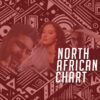Listeners:
Top listeners:
-
 play_arrow
play_arrow Cosoro Afrobeats UK's No.1 Afrobeats Radio Station
-
 play_arrow
play_arrow Cosoro Pidgin Na we b d No.1 UK Pidgin Radio
-
 play_arrow
play_arrow Cosoro Evergreen UK's No.1 Radio for Timeless African Sounds

Afrobeats star-turned-entrepreneur Mr Eazi is increasing his stake in Africa’s music business. Through his company emPawa Africa, he has officially opened the door to acquiring African music catalogues owned by rights holders, marking a strategic push to retain African intellectual property on the continent.
Mr Eazi took to X (formerly Twitter) where he asked right holders to reacg out.
“if you own an African music catalogue (with documentary proof), plus at least three years of earnings history, and you’re considering selling a piece of it, emPawa Africa wants to hear from you”.
The initiative targets catalogues with proven track records, not just a recent hit, but consistent revenue over time and the strategy comes alongside other moves by emPawa Africa, including the recent hire of Miller Williams as Head of Publishing, a role that will emphasize catalogue growth and pushing into international markets.
Globally, there has been a surge in companies, private equity funds, and tech platforms buying music catalogues (from superstars to lesser‑known artists). Such catalogues are viewed more and more as valuable assets. Africa is just beginning to see larger scale versions of this. Mr Eazi’s move signals that locally based players want to compete in that space.
What Is a Music Catalogue & Why It Matters,
A catalogue is the collection of rights an artist (or rights holder) has over their recorded works: songs, recordings, compositions, etc. The rights may include recordings, publishing rights, royalties, licensing, sync (for movies, ads, etc.), streaming, physical sales, etc.
Traditionally, artists or their labels retain these rights, but more and more of these catalogues are being bought, sold, or acquired by big companies or investors globally. The reason? Steady long‑term income. A well-managed catalogue can generate recurring revenues for many years.
Why This Move Is Important
Mr Eazi has emphasized that one of his goals is to keep African intellectual property under African ownership instead of seeing rights and profits siphoned abroad. Acquiring catalogues locally can help ensure profits, decisions, and cultural control remain tied to the continent. With its track record of discovering and developing talents like Joeboy, emPawa is no longer just a launching pad. This catalogue acquisition strategy shifts it more into the realm of publisher/investor, giving it deeper infrastructure and influence in rights management, global licensing, sync deals, etc.
For many African artists, monetization of music catalogues has been a challenge—documentation, consistent royalty‐flows, unclear ownership claims, etc. By offering upfront purchases (or part‐sales) to those who own proven catalogues, emPawa provides a route to cashing in on work already done, while giving buyers ownership and future income.
Mr Eazi’s announcement via emPawa Africa marks a strategic inflection point. It’s more than a business opportunity; it’s a statement of how African music stakeholders can reclaim value, ownership, and profit in ways that have often eluded them. If executed well, catalogues bought today could become bedrocks of wealth, cultural preservation, and global influence for African artists and entrepreneurs.
This move begs the question: how many catalogues will emPawa successfully acquire, and how it will balance empowerment with commercial ambition. But for now, it’s clear that the game for music rights in Africa just leveled up.
Written by: Adedoyin Adedara
Recent Comments
No comments to show.
Copyright © 2025 Cosoro Radio | All rights reserved









